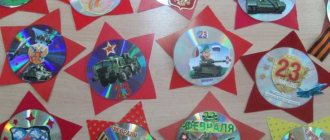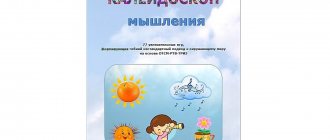Origins of Russian folklore
Studying Russian folklore makes us close to the history of our native land and people. There is no bright future without respect for the past. In the treasure trove of folk wisdom we will find advice from our ancestors and their messages to future generations. The beauty of Russian speech, combined with the depth of morality, makes Russian folk art especially valuable and necessary for everyone.
Origins of folklore genres:
- History of Russian folklore
- History of Russian folk song
- History of Russian Parsley
Read more >>
Origin of rhymes
Scientists suggest that the rhymes were originally used by adults. With the help of a counting rhyme, they determined who would do the more difficult part of the work, who would be the first to go on patrol, etc. This genre was also used for fortune telling. This version is also supported by the existence of counting rhymes with incomprehensible words, which often show similarities with distorted Latin, that is, initially they could also act as spells.
Counting books with incomprehensible words probably go back to the texts of Christmas fortune-telling and distorted seminary Latin
Folk rhymes are very popular among children, parents and teachers. They are useful for the development of memory, attention, speech, instill in children a love for the culture and history of the Motherland, promote honesty and camaraderie, and stimulate children's creativity.
The traditional purpose of the counting rhymes is to choose the driver in the game “Zhmurki”
Russian folk games and fun
A friendly disposition and open-mindedness encourages fun, especially during holidays and folk festivals, which are accompanied by lively games and folk amusements. There are games with certain strict rules, and there are simple and noisy ones for a large number of participants, for example, a stream with a round dance or the capture of a snowy town.
Games and fun of the Russian people:
- Grandmas
- Towns
- Lapta
- Brook
- Burners
- Hide and seek
- Ladushki
- Taking the snow town
Read more >>
Counting book as a genre of playful children's folklore
The counting table is a type of Russian gaming folklore. The first scientific work that paid close attention to this particular genre was the monograph “Russian Children's Folklore” published in 1930. Its author is Doctor of Philology G.S. Vinogradov. It contains more than 500 counting rhymes.
In 1989, the collection of folklorist A. N. Martynova, “Rhymes, Counting Countries, Fables,” was published, which is considered the most complete publication of these genres . In addition, counting rhymes can be found in the following publications:
- “Children's counting rhymes. Set for mom." 2010
- “A suitcase floated on the sea”, 2015
- “I went out for a walk for a month.” 2009
Counting books remain a popular genre in children's books today.
The distinctive features of the counting rhymes are:
- Practical applicability. Counting tables have a clear task: with their help, they choose the driver of the game, distribute roles or players among teams.
- Rhythm. If there is no rhythm in the counting rhyme, it will be very difficult to divide it into words or syllables, and the child reading it will get confused .
- Rhyming. Counting books in poetic form are easier to remember, and this was a definite plus in those days when books were not available to everyone.
- Brevity, information richness. It is these qualities that make the reading room a valuable material for broadening the horizons of children, familiarizing themselves with folk traditions and foundations.
The child gets acquainted with the first counting rhymes by counting his own fingers.
Russian folk musical instruments
The ancient Slavs used objects with the extraction of musical sounds for rituals and holidays. Over time, musical instruments have improved, many of which have passed through history to the present day. In Russian culture, among the Slavic musical instruments, traditional Russian folk instruments also appeared: balalaika, accordion, firewood and wooden spoons.
Russian musical instruments:
- Balalaika
- Gusli
- Horn
- Domra
- Accordion
- Russian accordion
- Tambourine (and bells)
- Firewood
- Whistle
- Ratchet
- Wooden spoons
Read more >>


